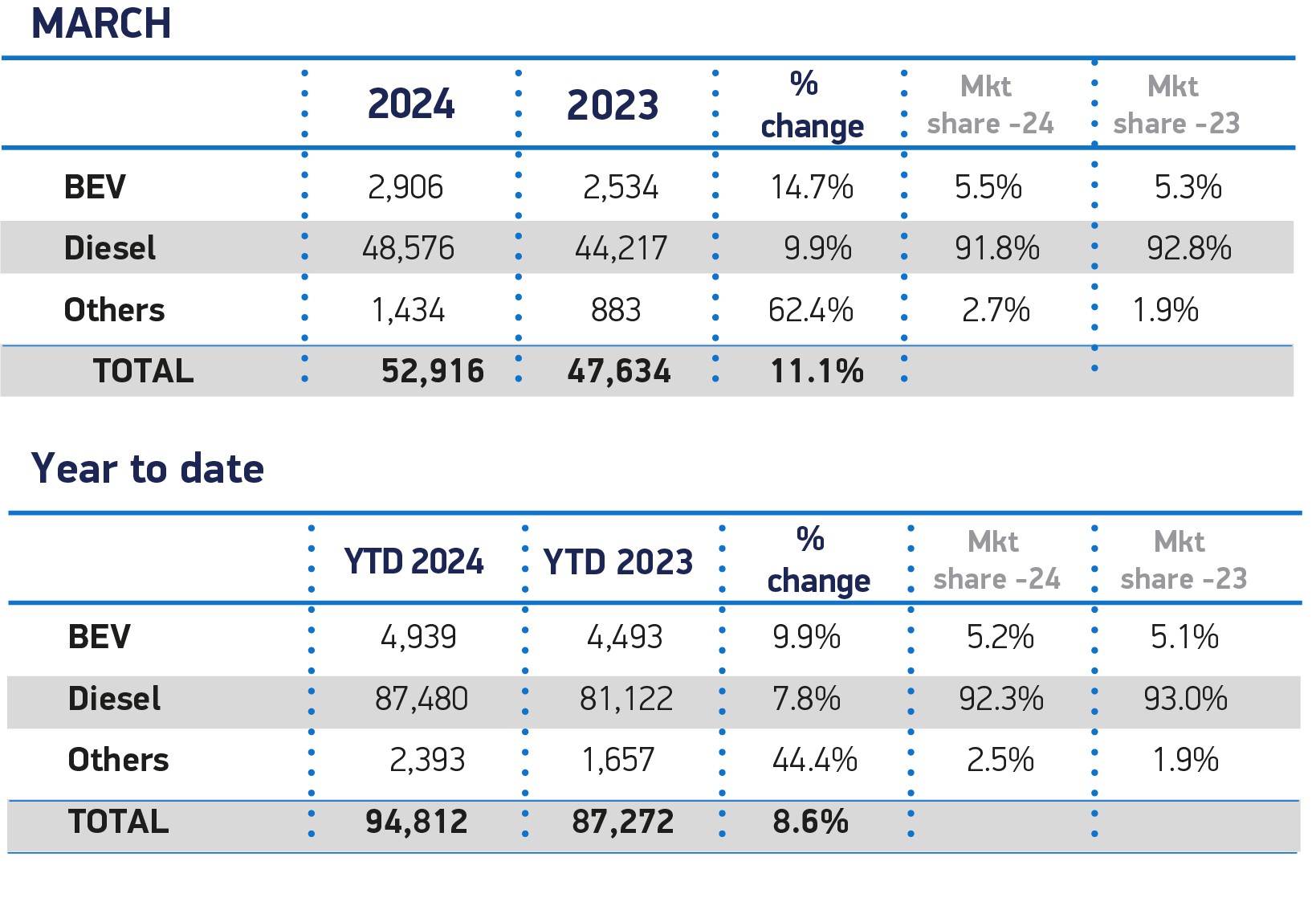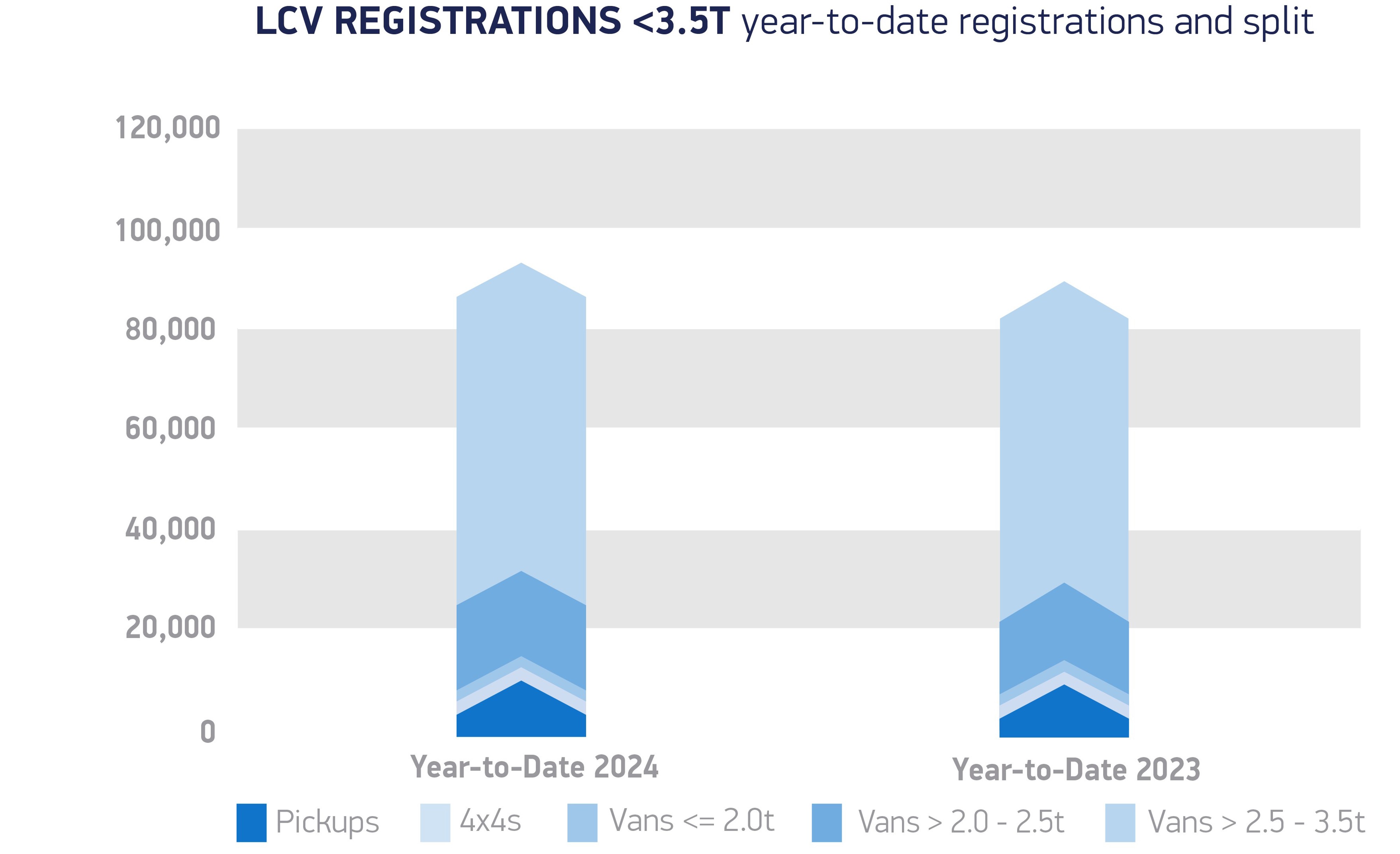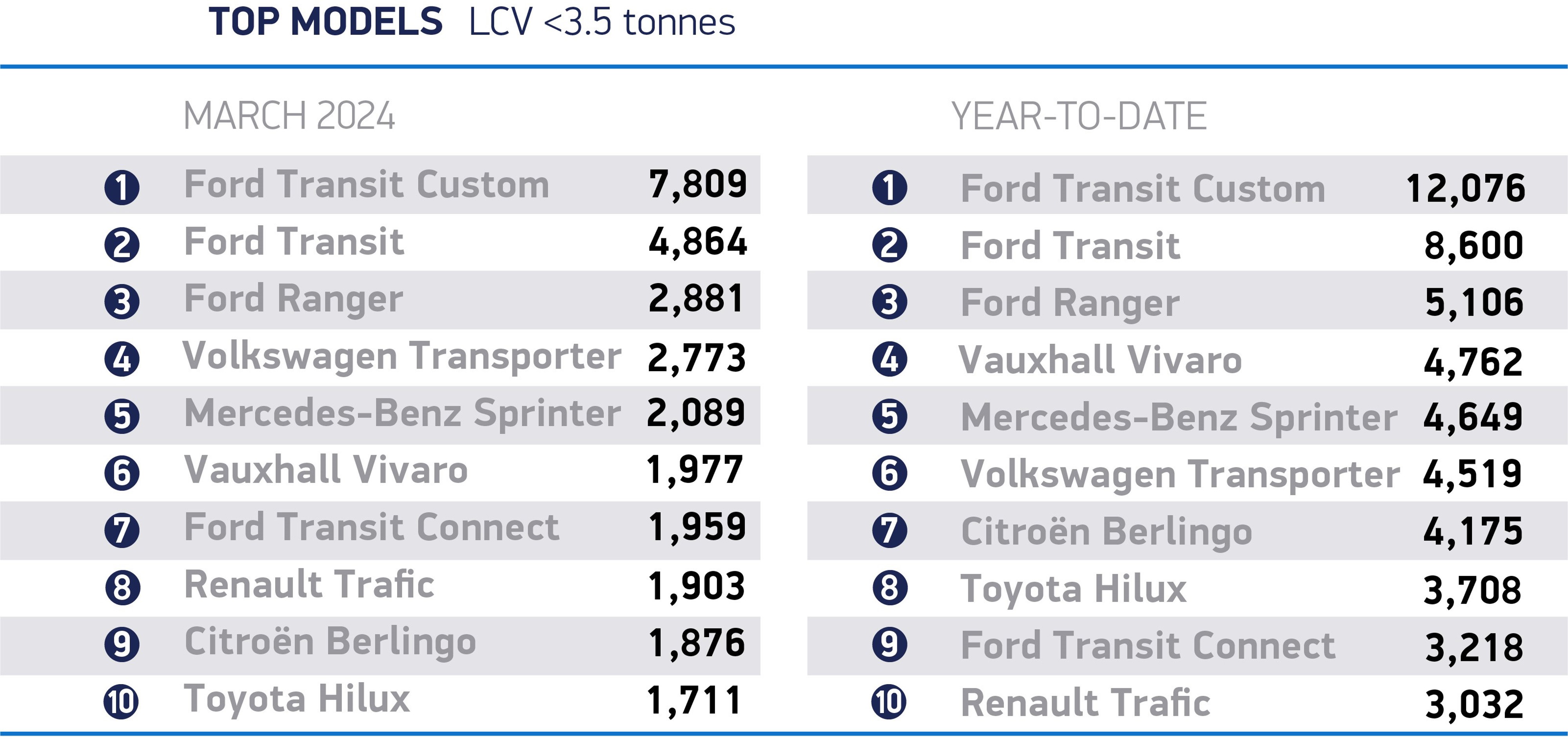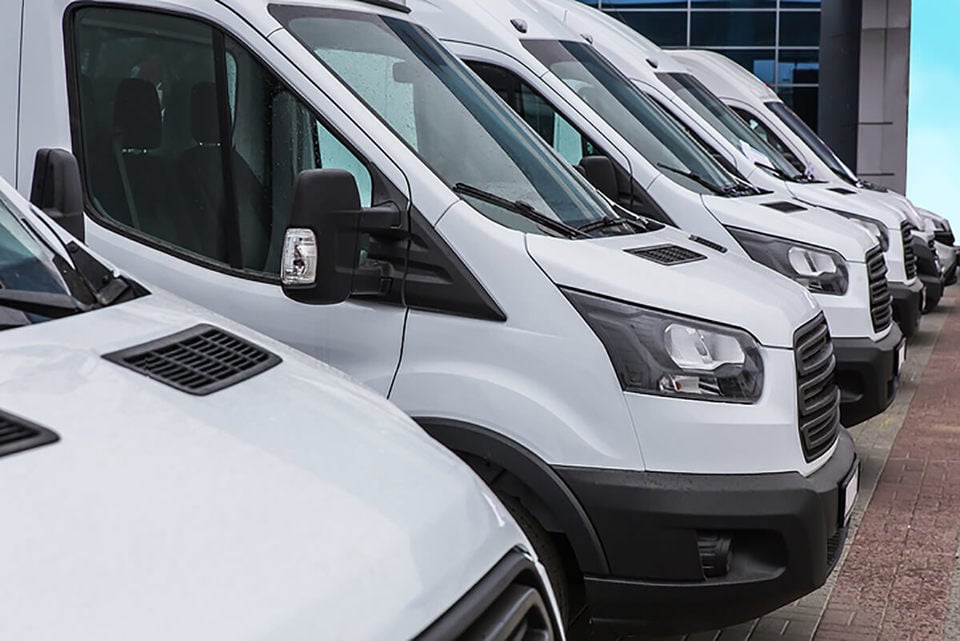More fleets went green in March than in any other new numberplate month to date, with new battery electric vans up 14.7% to 2,906 units, according to new figures from the Society of Motor Manufacturers and Traders (SMMT).
The record uptake, however, represented just 5.5% of the light commercial vehicle (LCV) market and was only slightly up from 5.3% in March last year, which is somewhat shy of the 10% market share mandated by Government in new rules introduced this year.

The SMMT says that urgent action is needed to improve the confidence of operators – from large fleets to small businesses and the self-employed – to switch to the growing range of fully electric vans on offer.
Mike Hawes, SMMT chief executive, said: “Industry is ready to deliver further, but with green uptake still below mandated levels, swift action is needed to give new van buyers the confidence to go electric.
“Rapid delivery of van-suitable public charging points and removing the hurdle of taxation on their use are key to greener fleets and a greener future.”
The new figures come days after transport minister Anthony Browne joined fleets for a roundtable discussion on some of the issues facing fleets operating zero-emission vans.
Topics covered in the discussion included a market update, support for small and medium-sized enterprises (SMEs), the importance of the plug-in van grant, charging solutions for electric vans and the concerns that 4.25t zero-emission vans should be regulated as vans and not HGVs as set out by the current legislation.
Maintaining existing purchase incentives is essential, says the SMMT, but urgent action is also needed to address the concerns of some businesses.
This includes tackling charging anxiety by ramping up van-suitable public infrastructure across the UK, from motorways to residential streets, so that operators have full confidence to charge wherever and whenever they need.
New analysis from New AutoMotive reveals that 21,000 electric vans have been sold in the past 12 months, with Vauxhall and Volkswagen battling it out for dominance of the UK's electric van market.
Sue Robinson, chief executive of the National Franchised Dealers Association (NFDA), says that, if ZEV targets are to be met, it is “imperative” price incentives are available and suitable charging infrastructure for vans is expanded throughout the UK.
She added: “The fourfold higher VAT cost on public charging compared to private or home charging creates another challenge for businesses aiming to shift to a net-zero fleet.”
Highest number of registrations in three years
Including internal combustion engine (ICE) vans, there more than 50,000 new LCVs registered in March as more businesses upgraded to the very latest models than in any other month during the past three years.

Some 52,916 new vans, 4x4s and pickups were registered, up 11.1% in the month, helping the LCV sector delivering its best first quarter for three years, with volumes now just 7.7% below Q1 2019.
Registrations were driven by popular demand for the largest models – those weighing more than 2.5 tonnes to 3.5 tonnes – up 16.1% to represent more than two thirds (67.3%) of the market.
The biggest percentage increase in uptake was of the smallest vans, up 44.8% to 986 units, while demand for medium-sized vans fell slightly by 3.6% to 8,939 units.
Pick-up volumes increased to 5,767, up 0.1% compared with a particularly strong month last year, while demand for the latest 4x4s rose by 29.1% to 1,632 units.

Matthew Davock, director of Manheim Commercial Vehicles at Cox Automotive, said that surpassing 50,000 new LCV registrations in a plate-change month and delivering the best Q1 in three years demonstrated both the "health of the LCV sector and strong manufacturer belief here in the UK.”
“Strong market penetration by the leading LCV manufacturers is quite evident, as both vehicle build and production delivery highlights,” he added. “Better overall stock choice is clear to see.”
Hawes concluded: “A strong new plate month with the greatest number of zero emission vans joining UK roads is a bellwether of the sector’s progress, cutting emissions while keeping British businesses on the move.”























Login to comment
Comments
No comments have been made yet.